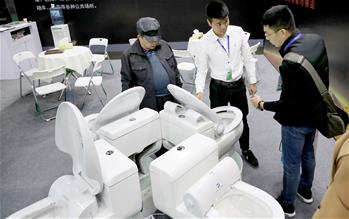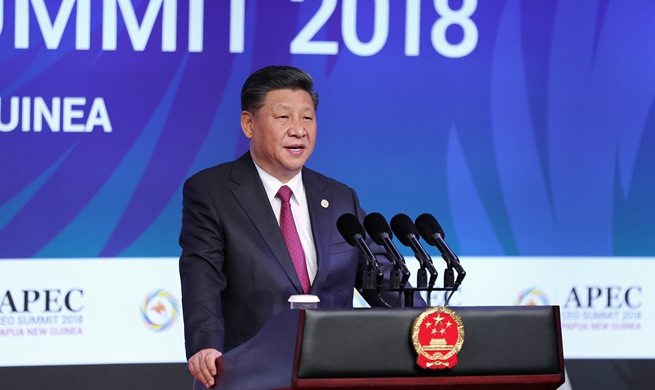SEOUL, Nov. 19 (Xinhua) -- South Korea's household debt growth slowed down for the first 10 months of this year compared with the same period for the past two years, financial regulator data showed Monday.
Debts owed by households to all financial institutions, including banks and nonmonetary institutions, increased 60.5 trillion won (53.6 billion U.S. dollars) in the January-October period, according to data jointly unveiled by Financial Services Commission (FSC) and Financial Supervisory Service (FSS).
It was down from rises of 98.8 trillion won (87.5 billion U.S. dollars) in the cited period of 2016 and 74.4 trillion won (65.9 billion U.S. dollars) in 2017.
It came as the financial regulator tightened standard for mortgage loans in January amid a rush among households to purchase new home with borrowed money.
The country's central bank refrained from altering its benchmark rate since the bank raised it in November last year to the current 1.50 percent from an all-time low of 1.25 percent.
To curb speculative investment in the real estate market, the government unveiled a set of measures in September.
Home-back loans rose 26.3 trillion won (23.3 billion U.S. dollars) in the January-October period, after growing 44.5 trillion won (39.4 billion U.S. dollars) in the 10-month period of last year.
Risk factors remained such as a fast rise in other loans, including credit loans, which jumped 34.2 trillion won (30.3 billion U.S. dollars) for the first 10 months of this year. It was larger than an increase of 29.9 trillion won (26.5 billion U.S. dollars) tallied in the same period of last year.
The self-employed increased loans from nonmonetary institutions, such as insurers, credit card issuers, credit unions and savings banks that usually demand higher lending costs than banks, according to the financial regulator.
The expected rate hike by the central bank was forecast to increase debt-servicing burden for households.













